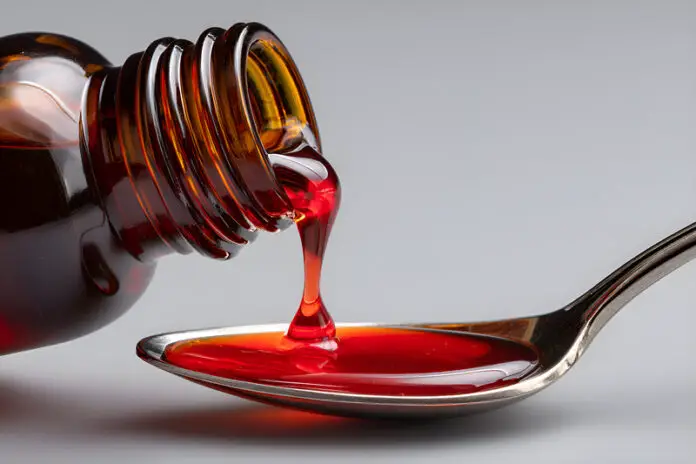Authorities in India have reported the deaths of at least 22 children under the age of five after they ingested contaminated cough syrup containing a lethal industrial chemical.
The fatalities occurred within the past month in Madhya Pradesh state. The affected children consumed Coldrif syrup, produced by Sresan Pharmaceuticals located in Tamil Nadu. Laboratory analysis revealed the syrup contained diethylene glycol at concentrations as high as 48.6 percent. This level is nearly 500 times above the permissible limit. Diethylene glycol, a toxic substance found in antifreeze and brake fluid, can be deadly even in minimal quantities, particularly for young children.
Of the 22 fatalities, 17 were from Chhindwara district, two from Betul district, two from Pandhurna district, and one from Parasia town. The victims included Shivam Rathore, age 4, Vidhi Namita, age 3, and Yogita Thakre, age 2, who passed away between early September and early October 2025. Five additional children remain hospitalized in Nagpur, Maharashtra, with kidney complications.
Police apprehended G. Ranganathan, 75, the owner of Sresan Pharmaceuticals, at his residence in Chennai early on Thursday morning, October 9. He is charged with culpable homicide not amounting to murder and drug adulteration. The arrest was part of a midnight operation involving Madhya Pradesh and Tamil Nadu police.
Madhya Pradesh Deputy Chief Minister Rajendra Shukla stated that authorities took immediate action after becoming aware of the fatalities. In a statement to Asian News International, he said that upon discovering the cause of the deaths was Coldrif syrup from the Tamil Nadu company, they promptly filed a case and set up a special investigation team.
Children who consumed the tainted syrup developed symptoms of acute kidney injury, such as decreased urination and elevated blood waste levels. Ten children died during treatment at Nagpur’s Government Medical College and Hospital. Medical examinations confirmed acute tubular injury in one victim, four-year-old Vikas Yaduvanshi, through a kidney biopsy.
An inspection of Sresan Pharmaceuticals’ facility revealed significant violations. The Tamil Nadu Drugs Control Department identified over 350 violations, including unsanitary storage and unauthorized use of non-pharmaceutical chemicals. Despite lacking proper manufacturing certification, the company continued its production and sales. Investigators found the company had unlawfully procured 110 pounds of propylene glycol without proper documentation.
The response to the crisis faced delays. When samples reached a Bhopal lab on September 30, staff prioritized testing other medicines before taking a holiday leave. Tamil Nadu’s Drug Control Department did not start an emergency inspection until October 1. Led by Deputy Director of Drugs Control S. Gurubharathi, the inspection team raided the plant in Kanchipuram district, uncovering numerous violations of drug manufacturing and testing regulations. Within one day, authorities concluded that Coldrif failed to meet quality standards and posed health risks.
Madhya Pradesh has banned Coldrif and other medicines from Sresan Pharmaceuticals. Chief Minister Mohan Yadav ordered the suspension of two drug inspectors and a deputy director of the Food and Drug Administration. The state’s drug controller was transferred. Tamil Nadu revoked the company’s manufacturing license, and Kerala also banned all Sresan Pharmaceuticals products. Uttar Pradesh prohibited the syrup as well.
Dr. Praveen Soni, a government pediatrician who prescribed the syrup at his clinic in Parasia, has been arrested. Most of the deceased children received treatment at his clinic after presenting with symptoms of a cold, cough, and fever. He told investigators he had been prescribing the syrup for 15 years. He faces charges under the Bharatiya Nyaya Sanhita and the Drugs and Cosmetics Act and has been suspended from his position.
The government has announced compensation of 4 lakh rupees (approximately $4,800) for each victim’s family and has committed to covering all medical expenses for hospitalized children. Officials have ordered the removal of existing stock from stores and initiated a campaign to retrieve the drug from homes in affected areas.
This incident is not isolated. In 2022, over 70 children died in Gambia from kidney failure after consuming Indian-imported cough syrup. The World Health Organization found these syrups contained excessive levels of diethylene glycol and ethylene glycol. Uzbekistan also reported 68 child deaths between 2022 and 2023 linked to contaminated syrup from India. In January 2023, the U.S. Food and Drug Administration collaborated with the WHO to investigate contaminated syrups responsible for more than 300 child fatalities in Asia and Africa.
India ranks as the world’s third-largest pharmaceutical producer by volume, following the U.S. and China. Indian pharmaceutical companies supply 20 percent of global drug demand and 60 percent of worldwide vaccine use. Since October 2022, the WHO has issued six alerts regarding contaminated syrups and estimates that 15 Indian companies are implicated.
The issue often originates from a common ingredient. Propylene glycol, used in cough syrups, can become contaminated with cheaper industrial chemicals like diethylene glycol, which are used as solvents in paints, plastics, and antifreeze for brakes.
The Indian health ministry convened a high-level meeting to review drug quality standards and the use of cough syrups for children. Health officials concluded that cough and cold medicines should not be administered to children under two years old and are generally not advised for those under five due to limited benefits and significant risks.

